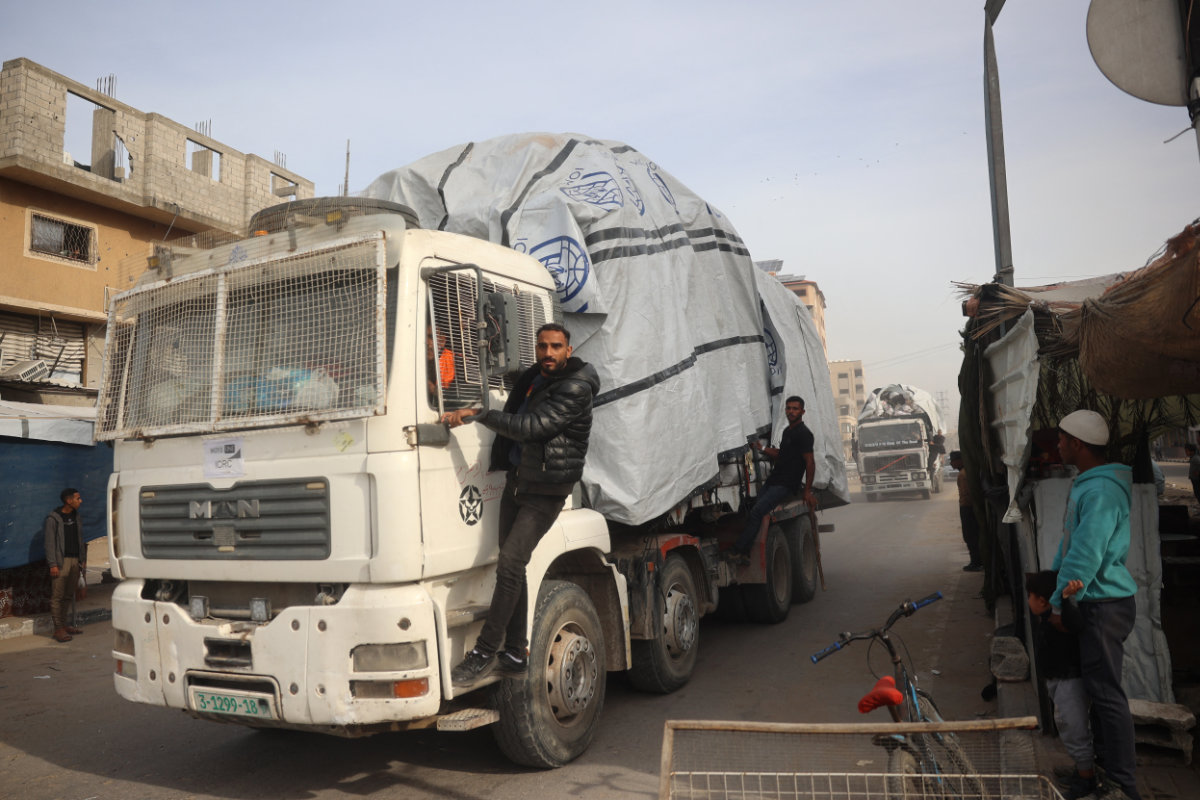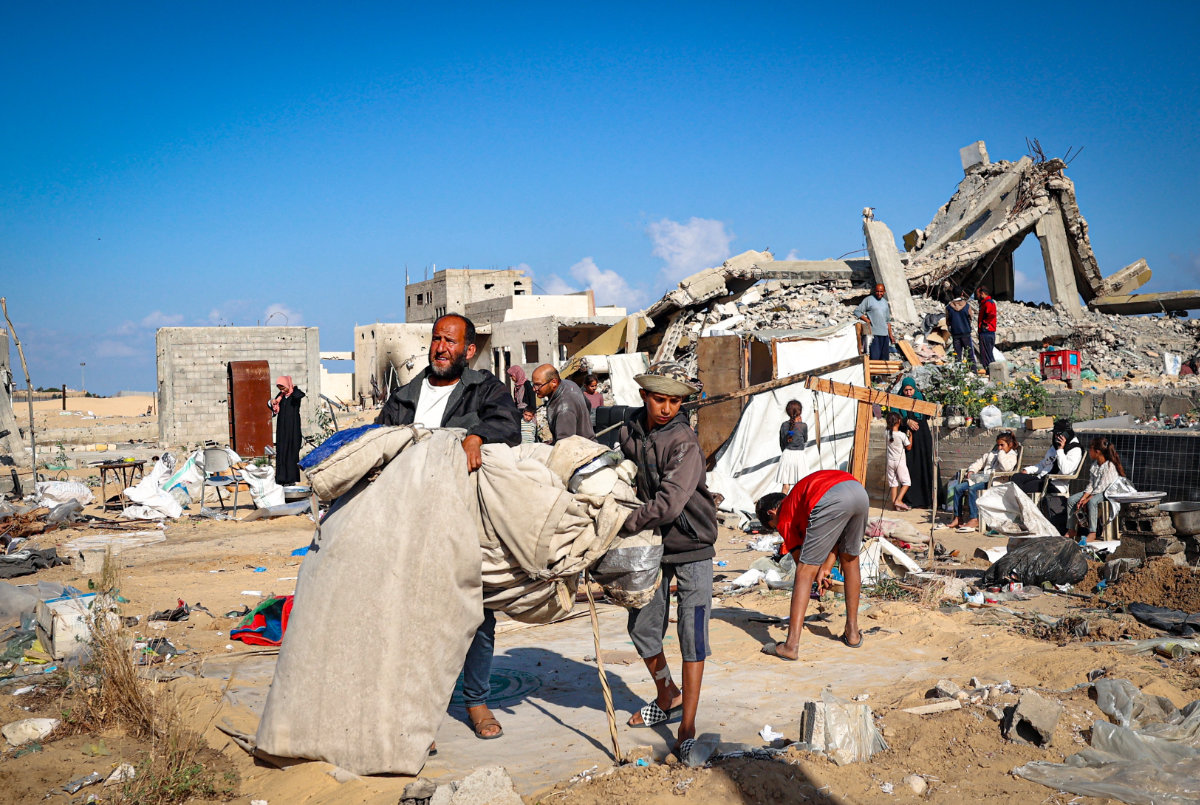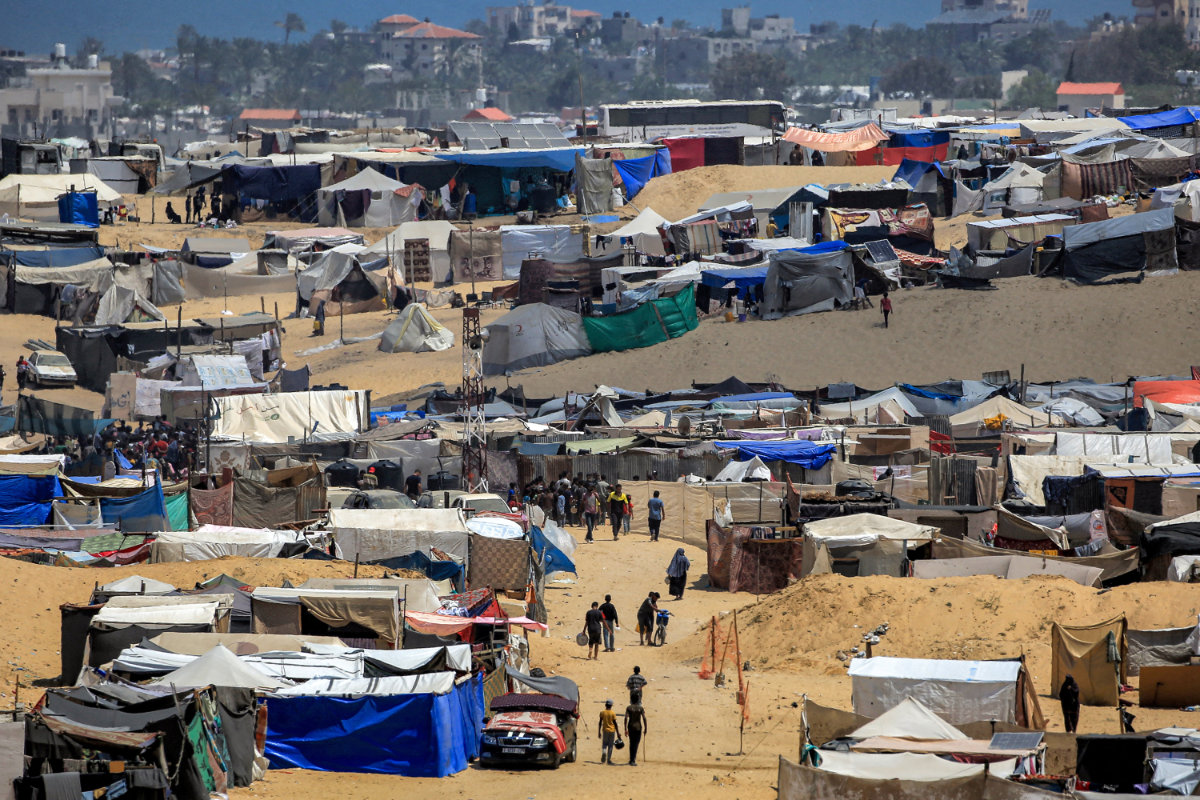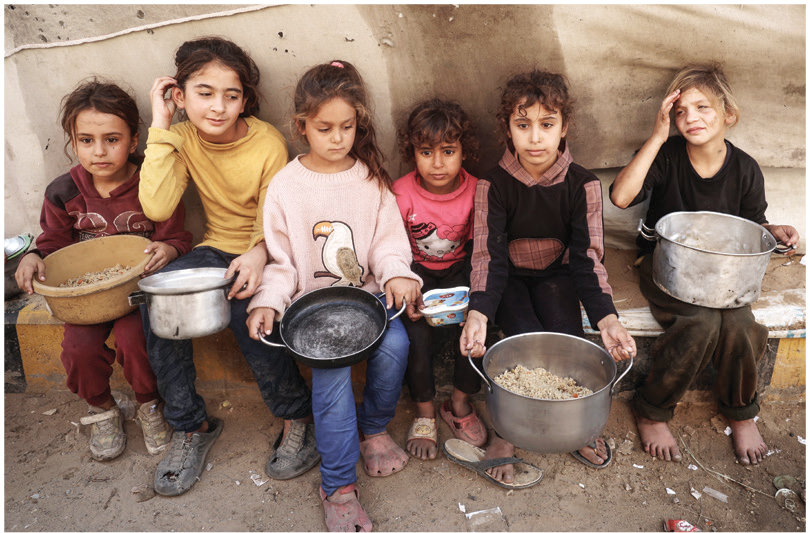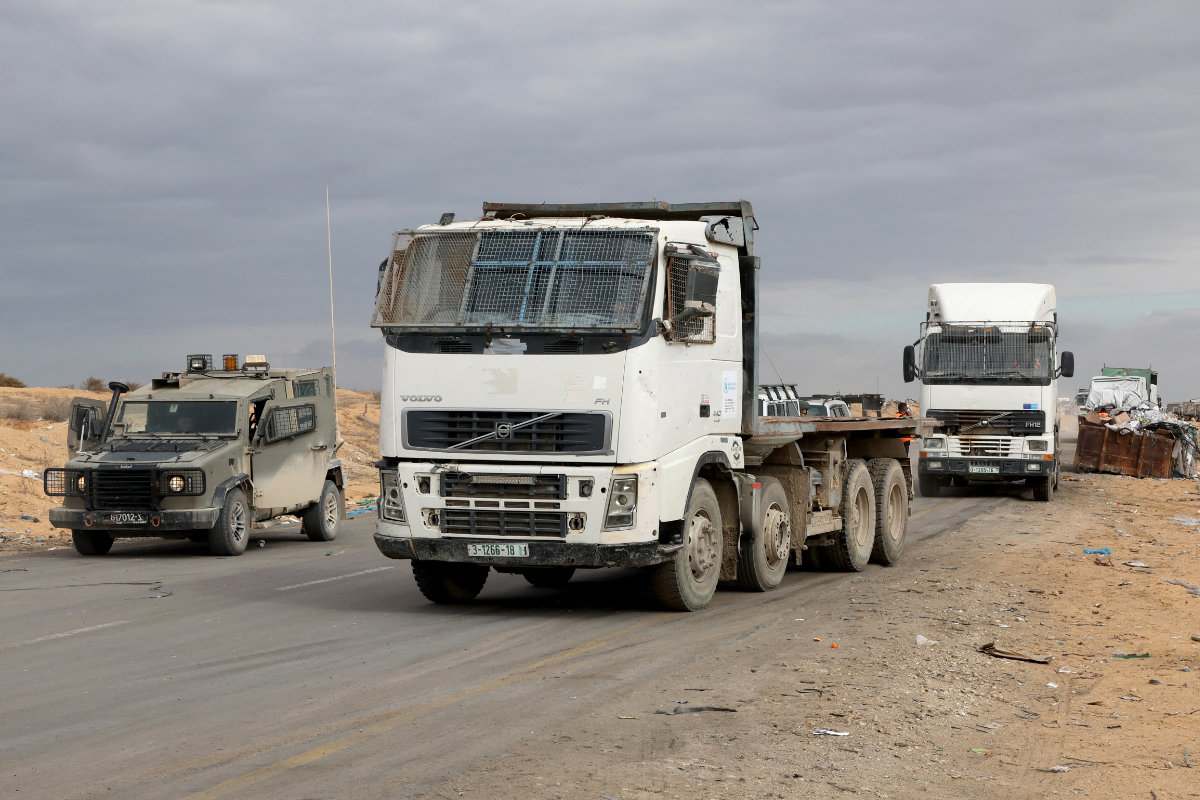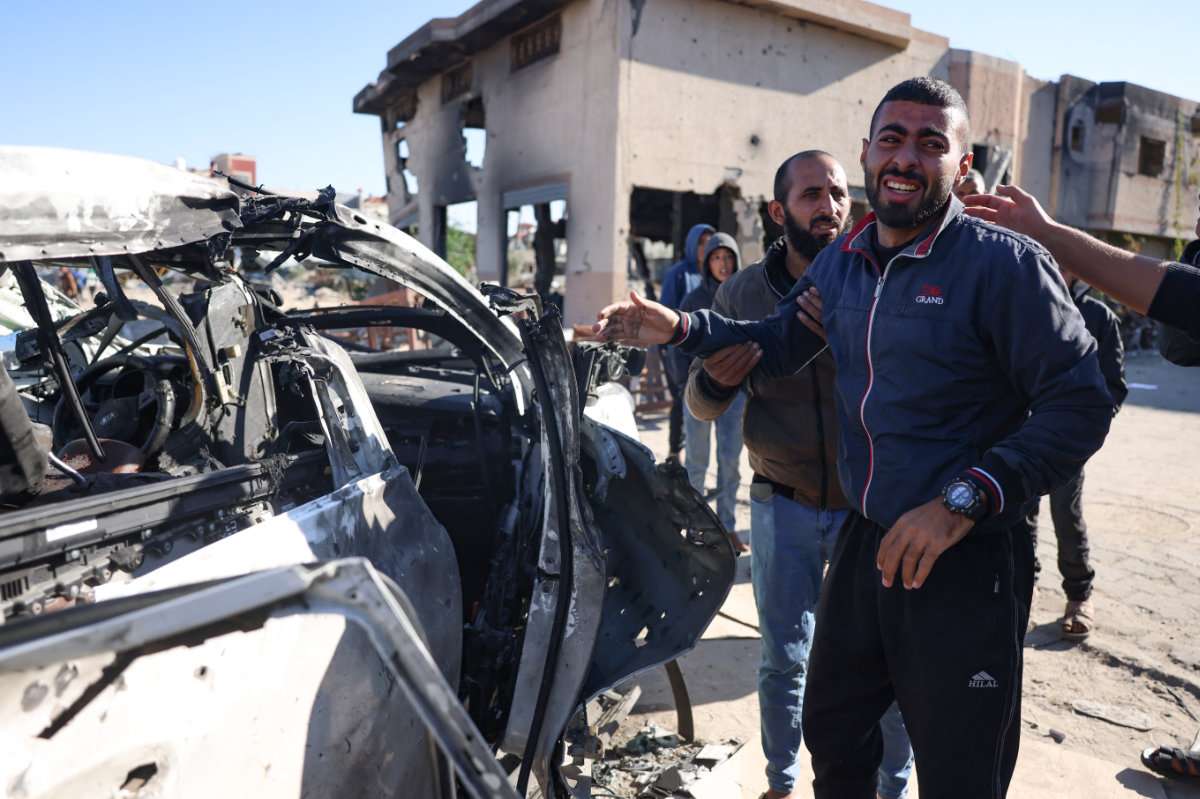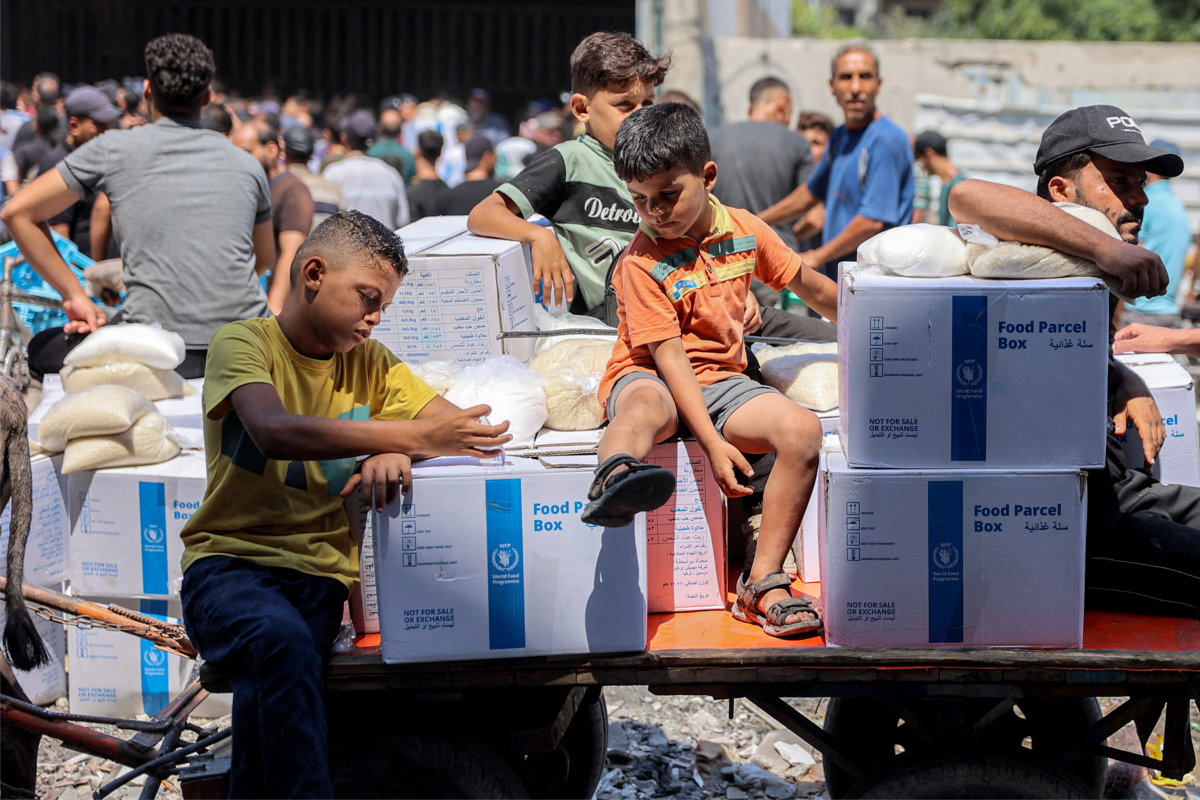BEIRUT: The sounds of Israeli missiles raining down on the southern suburbs of Beirut and Hezbollah missiles striking the city of Haifa and its surroundings overshadowed all political calls for an end to the war on Tuesday.
This conflict, now entering its second year, has resulted in over 2,000 casualties, thousands of injuries, the destruction of approximately 50,000 houses, and the displacement of more than 1 million Lebanese from their villages in the south and Bekaa Valley, as well as from the southern suburbs of Beirut.
The Israeli military expanded its ongoing aerial surveillance of Beirut’s airport and its monitoring of land crossings with Syria to include maritime oversight.
This development follows a recent warning issued by Israeli army spokesperson Avichay Adraee, advising “vacationers and individuals present on the beach, as well as those using boats for fishing or other purposes from the Al-Wali River line toward the far south, to refrain from being in the sea or on the shore from this point forward until further notice.”
He announced that the Israeli military “will soon take action in the maritime area against Hezbollah activities.”
Israeli warships have aggressively engaged in attacks on coastal towns in the southern region, particularly targeting the town of Naqoura, which serves as the headquarters for forces of the UN peacekeeping mission in Lebanon, UNIFIL.
The Israeli army announced in the morning “the elimination of Suhail Hussein Husseini, the head of the Hezbollah command structure, in an airstrike that targeted him in the southern suburbs of Beirut.”
Adraee said: “Husseini was targeted in a precisely executed airstrike in Beirut. The unit he leads is a logistical unit focused on the manufacturing of precision-guided missiles, as well as the storage and transportation of combat resources within Lebanon.”
In the morning, the Israeli army announced the commencement of “limited ground operations against Hezbollah in the western sector of southern Lebanon.”
Field reports indicated an Israeli attempt to penetrate the Lebanese border town of Maroun Al-Ras.
The Israeli army announced that “30 soldiers were killed in the last 24 hours on the northern border with Lebanon.”
UNIFIL forces disclosed that they rejected repeated requests from the Israeli side to vacate their positions in the area of their deployment along the border, insisting on the continuation of their operations in accordance with Resolution 1701.
They reported on “activities conducted by the Israeli army near the mission site 6 – 52, southeast of Maroun Al-Ras in the western sector within Lebanese territory,” expressing “serious concern.”
They described the events as “extremely serious developments” and said “it is unacceptable to jeopardize the safety of peacekeeping forces while they are carrying out their mandated tasks from the Security Council.”
UN Special Coordinator for Lebanon Jeanine Hennis-Plasschaert and head of UNIFIL Gen. Aroldo Lazaro said in a statement: “It has been a year since our repeated calls for restraint, the protection of civilians, adherence to international humanitarian law, a return to ceasefire, and engagement in a political process based on the implementation of Resolution 1701 have been disregarded.”
The two UN officials said that “the escalation of violence and destruction will not resolve the fundamental issues nor provide long-term security for any party.”
They emphasized that “a negotiated solution is the only path to restoring the security and stability that civilians on both sides of the Blue Line deserve. It is time to take action in this direction.”
Sheikh Naeem Qassem, deputy secretary-general of Hezbollah, meanwhile, addressed his supporters through a pre-recorded message broadcast on television. He urged the party’s supporters to remain steadfast and patient while assuring them that the resistance remains resilient. He also promised them “victory.”
Qassem said: “The resistance in the Gaza Strip is capable of persevering.”
He emphasized that Iran is “determined to support this resistance in whatever manner it deems appropriate. This struggle is not about Iran’s influence, but rather about assisting the Palestinians in liberating their land.”
Qassem warned that Hezbollah is capable of displacing “many times the number of settlers in northern Israel.”
He said: “We will expand our strikes against the enemy within the range of our missiles, and we will target locations at a time of our choosing. There are numerous settlements within the reach of the resistance’s missiles.”
Qassem added said: “Before the ceasefire, any other discussion is irrelevant to us. The situation on the ground will dictate the outcome, and we are the ones who are directly involved; we will not plead for a solution.”
He spoke about filling all the vacancies in the party’s leadership after the assassinations that affected the front- and second-line leaders and field commanders and said the selection of a secretary-general to succeed Hassan Nasrallah “will be announced in due time following the organizational mechanisms.”
As soon as Qassem finished his speech, Israeli planes carried out violent airstrikes on Beirut’s southern suburb, specifically in the vicinity of Haret Hreik-Rweiss.
Hezbollah announced shelling “the city of Haifa and Krayot with a large salvo of rockets.” The Israeli army reported “the launching of around 105 rockets from Lebanon toward the Haifa Bay in two waves.”
Israeli Channel 12 said that “12 individuals were injured,” and the shelling caused extensive material damage.
The Israeli army continues to prevent paramedics and Civil Defense personnel from rescuing the injured after each raid on the southern suburb.
On Tuesday, it shelled around the area where a group of Civil Defense members of the Ministry of Interior tried to enter the Haret Hreik area after the raids.
The Israeli airstrikes claimed more lives in the southern town of Adloun and the town of Khodr in the Baalbek-Hermel governorate.
Israeli planes carried out a strike targeting the main conveyor of the Litani River water toward the Qasimia irrigation project in the Arzay area, which draws more than 260,000 cubic meters of water daily to irrigate about 6,000 hectares of agricultural land along the southern coast.
At the same time, air bridges for relief supplies continued for the displaced. A Qatari plane loaded with medical, shelter and food aid arrived, led by Minister of State for International Cooperation Lulwa bint Rashid Al-Khater, who affirmed in a press conference “support for Lebanon, its sovereignty and its right to maintain its security and stability and the security of its citizens.”






















